The latest AWS CLI has a CloudWatch Logs cli, that allows you to download the logs as JSON, text file or any other output supported by AWS CLI.
For example to get the first 1MB up to 10,000 log entries from the stream a in group A to a text file, run:
aws logs get-log-events \
--log-group-name A --log-stream-name a \
--output text > a.log
The command is currently limited to a response size of maximum 1MB (up to 10,000 records per request), and if you have more you need to implement your own page stepping mechanism using the --next-token parameter. I expect that in the future the CLI will also allow full dump in a single command.
Update
Here's a small Bash script to list events from all streams in a specific group, since a specified time:
#!/bin/bash
function dumpstreams() {
aws $AWSARGS logs describe-log-streams \
--order-by LastEventTime --log-group-name $LOGGROUP \
--output text | while read -a st; do
[ "${st[4]}" -lt "$starttime" ] && continue
stname="${st[1]}"
echo ${stname##*:}
done | while read stream; do
aws $AWSARGS logs get-log-events \
--start-from-head --start-time $starttime \
--log-group-name $LOGGROUP --log-stream-name $stream --output text
done
}
AWSARGS="--profile myprofile --region us-east-1"
LOGGROUP="some-log-group"
TAIL=
starttime=$(date --date "-1 week" +%s)000
nexttime=$(date +%s)000
dumpstreams
if [ -n "$TAIL" ]; then
while true; do
starttime=$nexttime
nexttime=$(date +%s)000
sleep 1
dumpstreams
done
fi
That last part, if you set TAIL will continue to fetch log events and will report newer events as they come in (with some expected delay).

